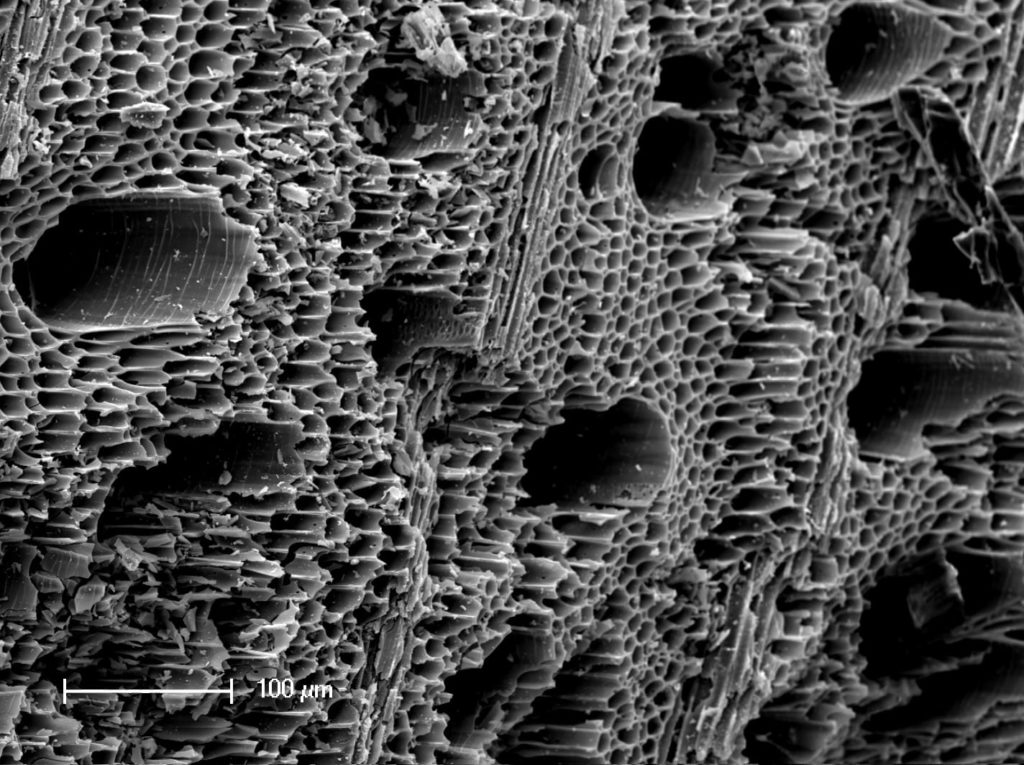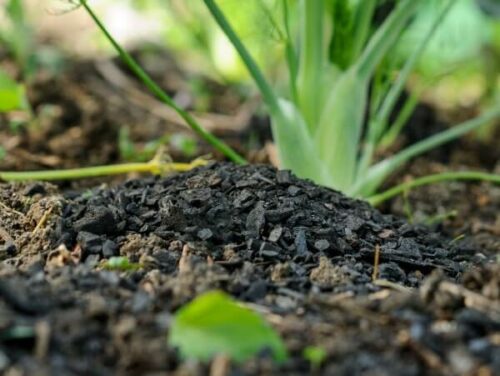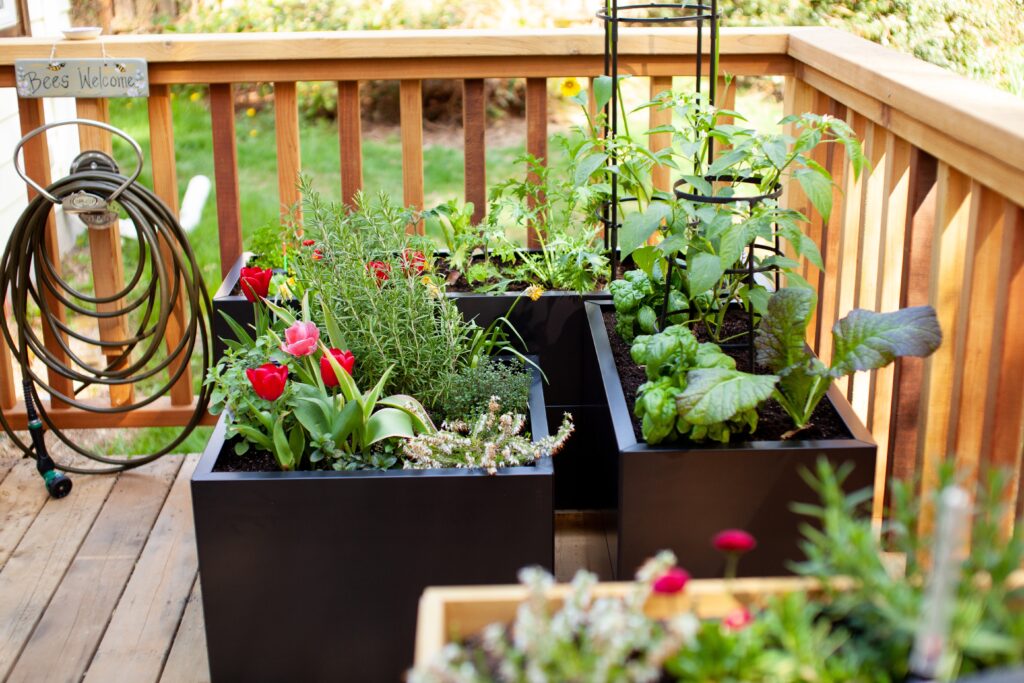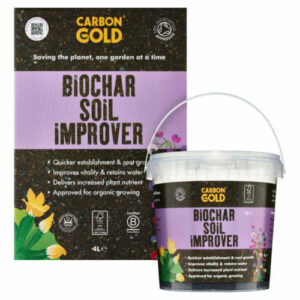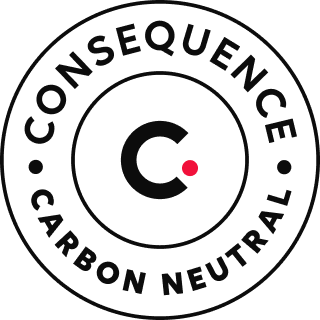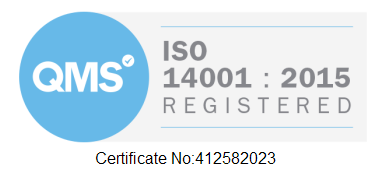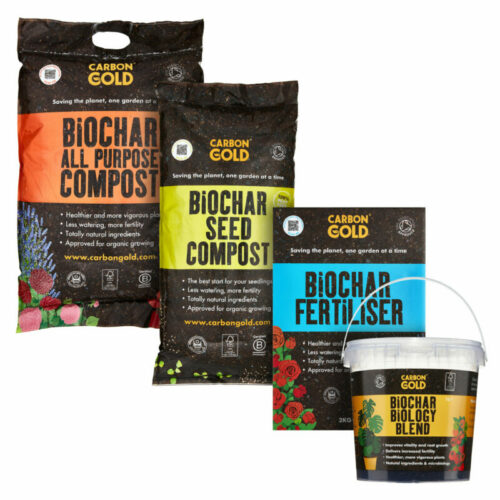The definition of biochar is a type of charcoal which is produced from organic and forestry wastes. This is then “burnt” in a specialist way (pyrolysis). Within the pyrolysis process, very few contaminating fumes are emitted, and the feedstocks themselves are converted into a stable form of carbon and that way it can not escape into the atmosphere. It is known by many names including black gold, black soil, amazon soil amongst others.
What is it used for?
The inert properties make it ideal to be used as a soil improver. It is made of a sustainable organic material and can be used to store carbon in terra preta soil. The residual organic material improves soil quality through nutrient retention, reducing soil degradation ,reducing water use through better water retention as well as reducing greenhouse gas emissions (nitrous oxide & carbon dioxide) and at the same time aiding the worlds climate issues.
The production process is called pyrolysis. This means that organic feedstocks are heated while being deprived of oxygen generally at a temperature of between 300°C and 700°C. Purity wise the resulting biochar does not degrade so improves soils for millennia . The final biochar is black in colour, light weight and finely grained, and possesses large surface areas. Biochar is also widely known for reducing carbon dioxide and nitrous oxide in the atmosphere. Making biochar combines unstable carbon in decaying plants into a stable form of carbon.
Biochar production does however emit some greenhouse gases, but the pyrolysis process used in the production of our woody feedstocks is UK based and is a closed loop system. The resulting syngas is turned into renewable clean energy to use on the production site but also enabling some electricity to be sent to the national grid. Currently we as a company offset around 150T of CO2 per annum. Our plan long term is for our entire production to be a carbon negative process, and aid climate change further.
The life cycle explained
The production process used in the making biochar is called pyrolysis, meaning that organic feedstocks are heated while being deprived of oxygen generally at a temperature of between 300°C and 700°C. Purity wise it does not degrade so improves soils for millennia . The final biochar is black in colour, light weight and finely grained, and possesses large surface areas, making it suitable for a wide range of applications. Biochar is known for reducing carbon dioxide and nitrous oxide in the atmosphere. Making biochar combines unstable carbon in decaying plants into a stable form of carbon.
Unfortunately the production does emit some greenhouse gases, however the pyrolysis process used in the pyrolysis of our woody feedstock is UK based and is a closed loop system, the syngas is turned into renewable clean energy to use on the production site but also enabling some electricity to be sent to the national grid. Currently we offset around 150T of CO2 per annum but our plan long term is for our entire production to be a carbon negative process, and aid climate change further.
What is biochar and what are its benefits?
- The end result is a carbon rich substance which has been credited by some experts with restoring soils, improves plant health, soil structure, and improving the environment through carbon sequestration.
- Biochar retains around 50% of the carbon present in the original biomass and significantly slows the decomposition rate so it can last for centuries or even millennia.
- Biochar is relatively lightweight dependant on the feedstock used, our biochar is a combination of different woody feedstocks and has a bulk density of around 450g/l.
- It becomes a porous feedstock which and can act as the sponge and acts as a refuge for beneficial soil microbes that help improve soil fertility in terra preta soils.
- It can be used as a medium to store moisture and aid water retention in the soil and could be considered as a solution to soil fertility issues caused by climate change.
- While there are some carbon emissions produced through the production process, it is significantly less than if the feedstock was burnt in an open source, making it a carbon sink in the soil.
Our video explains why biochar should be used in soil,
So what are the disadvantages?
Although there are many advantages to using biochar application in soil there are some disadvantages as well.
- Biochar itself is quite dusty so care should be taken when using it.
- If plain biochar is used in soil it does adsorb nutrients for a period of time which could cause a deficiency of nutrients. However using our enriched products negates this problem as we have added one of our special mixes of natural biology to our products already.
- The high pH (alkalinity) of some soils will not tolerate biochar as some crops only tolerate a certain range of soil pH.
- The feedstocks used for the production of biochar is really important, as some types of biochar can act as a source of contaminants such as heavy metals, PAH’s (Polycyclic Aromatic Hydrocarbons).
The Environmental Benefits of biochar

Researchers have suggested that making biochar with an organic material via the pyrolysis process is also beneficial for the environment, and aids with solving a multitude of world-changing issues which include climate change, global warming and soil degradation. Biochar could also help store up to 1 billion tonnes of stable carbon annually in the soil which has many environmental benefits such as reduction of nitrous oxide emissions while at the same time sequestering carbon. Biochar is also a source of clean renewable energy which is generated as a bi-product of the pyrolysis process, and this could be used as an alternative source of energy.
Why is there more of an interest in biochar now?
The current spike in interest around this whole area associated with climate and agricultural systems is due to it being cited as a way to flight climate change. Biochar systems are especially relevant in developing countries and could be utilised to address challenges in food production exacerbated by global warming.

To speak to use further about all your biochar requirements, either contact us through our website or telephone us on 0117 2440032..
